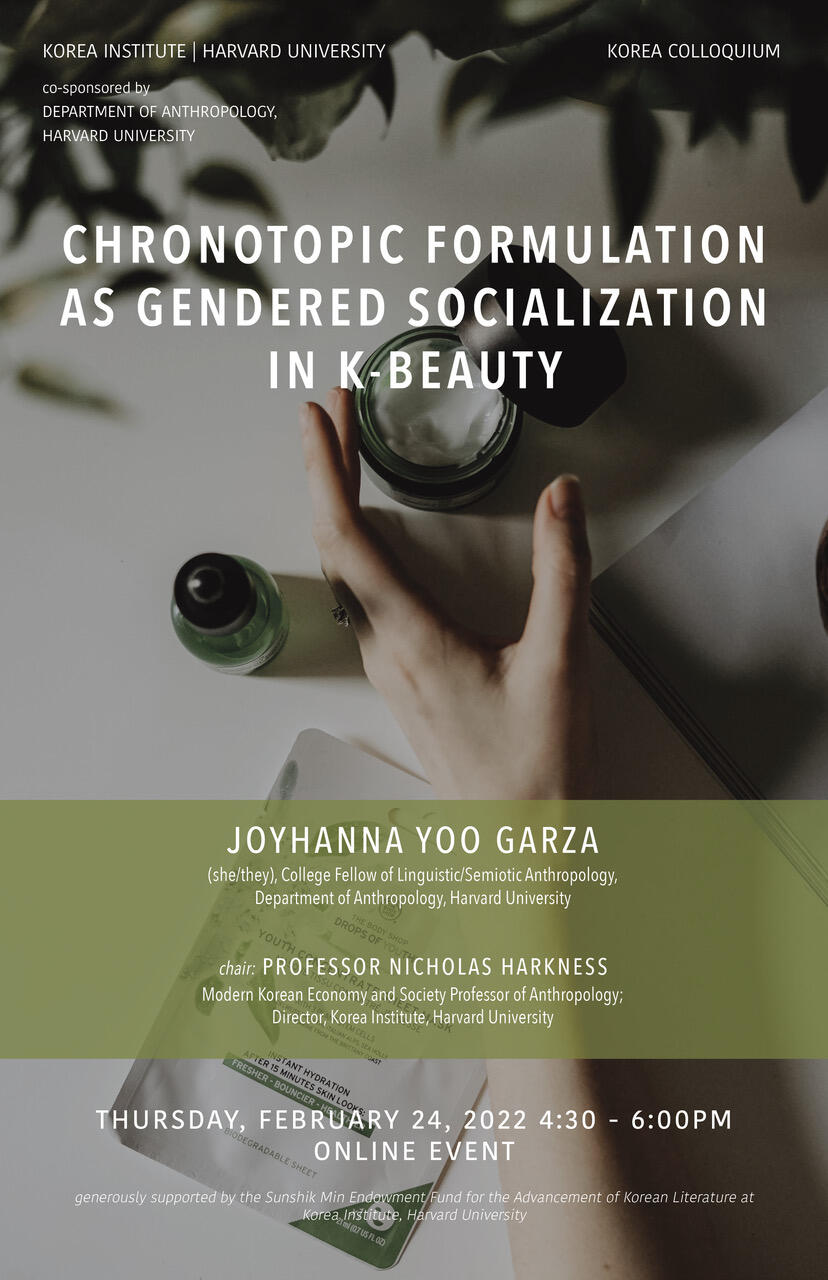Date:
Location:
Korea Colloquium
Co-sponsored by Department of Anthropology, Harvard University

Joyhanna Yoo Garza
College Fellow of Linguistic/Semiotic Anthropology, Department of Anthropology, Harvard University, 2021-22
Joyhanna Yoo Garza is a College Fellow in Anthropology coming from UC Santa Barbara where she completed a PhD in Linguistics. She studies local engagements with transnational Korean popular culture, especially its consumption in Mexico and the US with an analytic focus on language, race, and gender. She’s especially interested in embodied and affective dimensions of performance and takes a semiotic approach to the study of language and other sign phenomena. Joy has a secondary research interest in Asian American racialization in contexts of higher education.
Chaired by Nicholas Harkness, Modern Korean Economy and Society Professor of Anthropology; Director, Korea Institute, Harvard University
Abstract:
Globally, skincare practices and beauty norms are increasingly influenced by K-beauty, a term that encompasses South Korean skin care and cosmetics. In tackling new markets, Korean American entrepreneurs discursively perform expertise, in part by sharing memories of socialization experiences and ritual practices. In part, these discourses rely on overdetermined notions of Koreans as arbiters of longstanding beauty traditions historically lacking in the West. By taking a semiotic anthropological approach, my ongoing project combines digital ethnography and media and discourse analysis to examine the discursive, affective, and ontological effects of the recent global visibility of K-beauty. In this presentation, I examine Bakhtinian (1981) chronotopes, the time-space-figure configurations embedded in Korean American entrepreneurs’ discourses about K-beauty to reveal how, rather than a simple fad, Kbeauty is treated as a philosophy rooted in longstanding gendered ritual practice. Within such chronotopic formulations, I pay special attention to accounts of gendered socialization processes wherein descriptions of sensuous qualities are embedded. Close analysis of sensuous experience reveals how gendered socialization relies on taken-for-granted notions of beauty and cultural credibility, which K-beauty entrepreneurs repackage as expertise. Furthermore, the recollection of sensorial practice posits aspirational figures of personhood such as the dutiful daughter turned-entrepreneur, which in turn socializes the K-beauty consumer.
***
To attend this online event, please register here.
Generously supported by the Sunshik Min Endowment Fund for the Advancement of Korean Literature at the Korea Institute, Harvard University